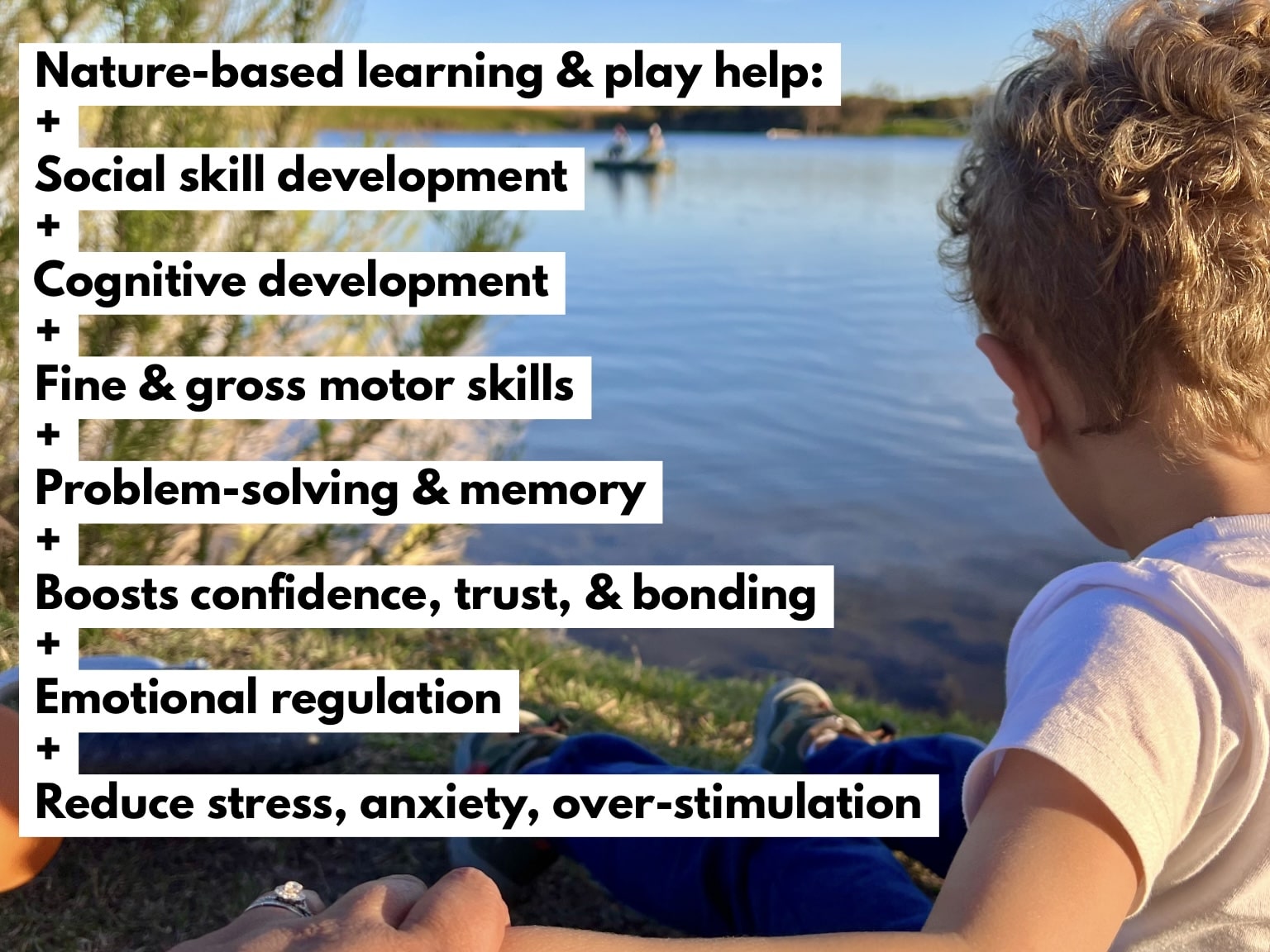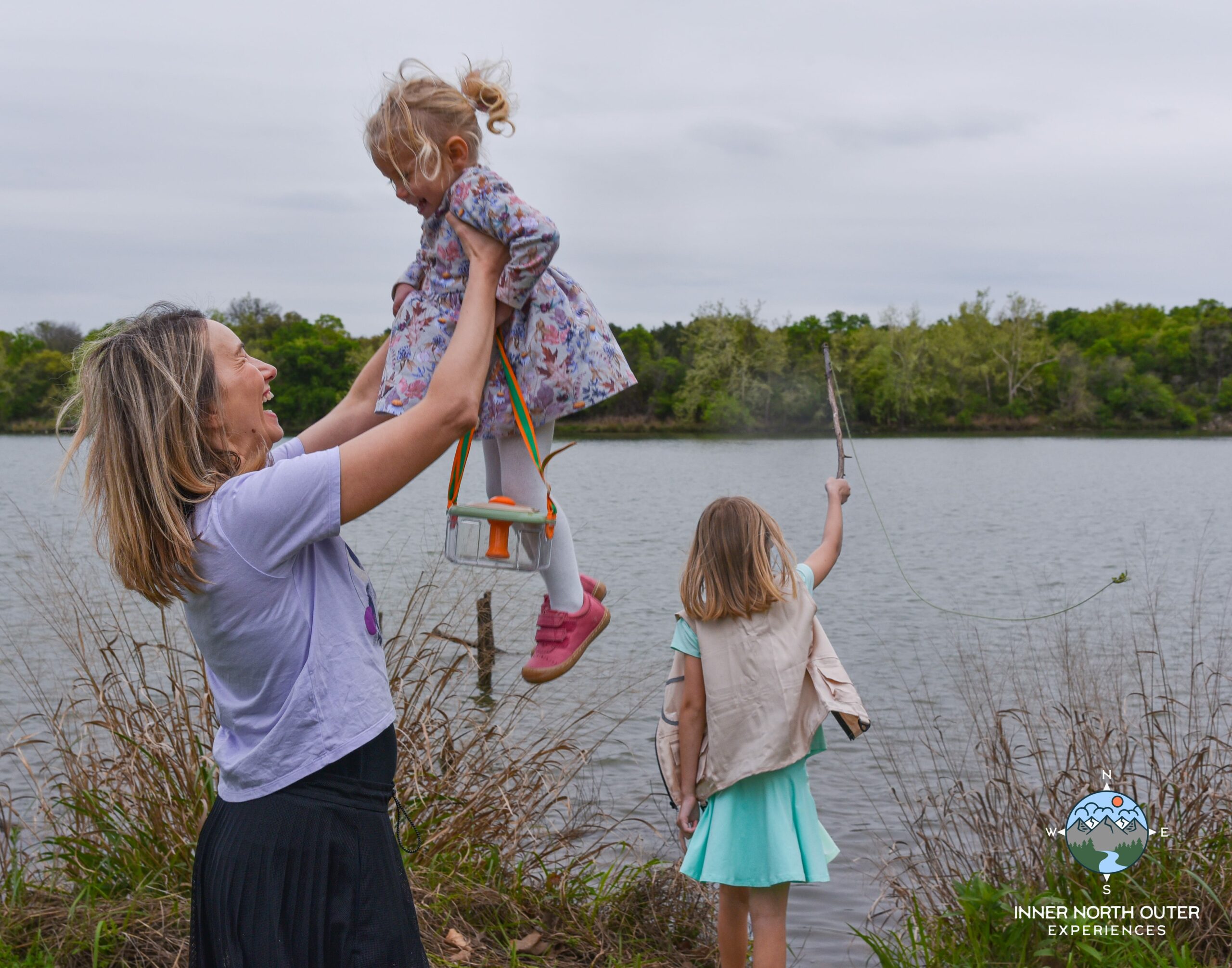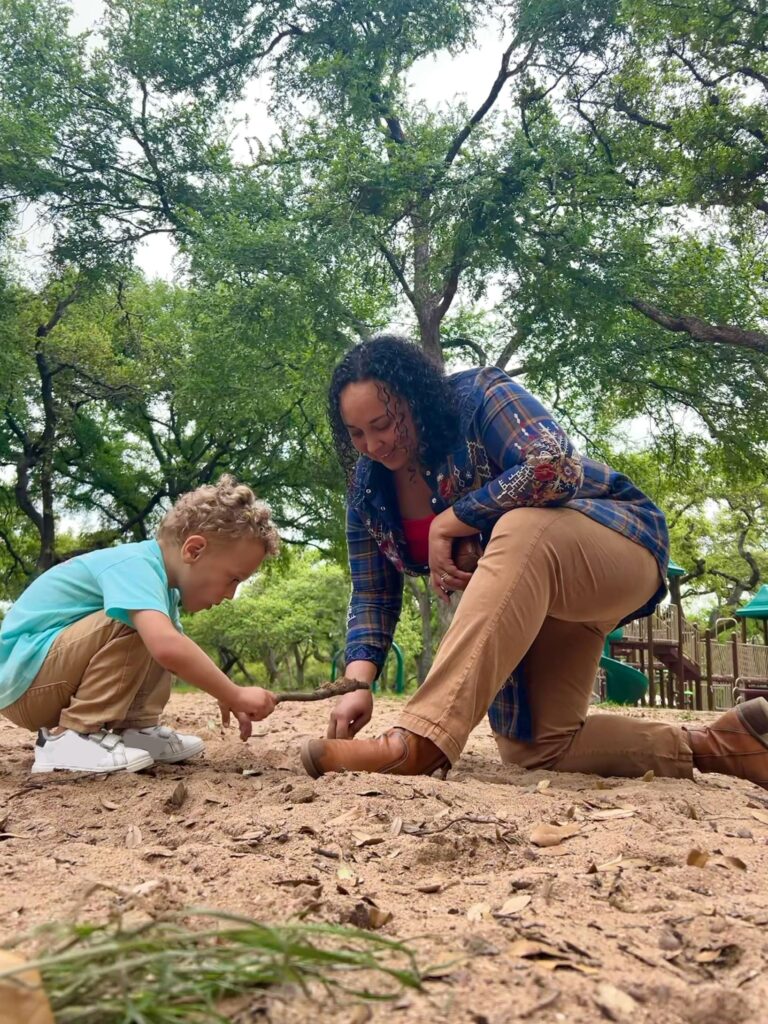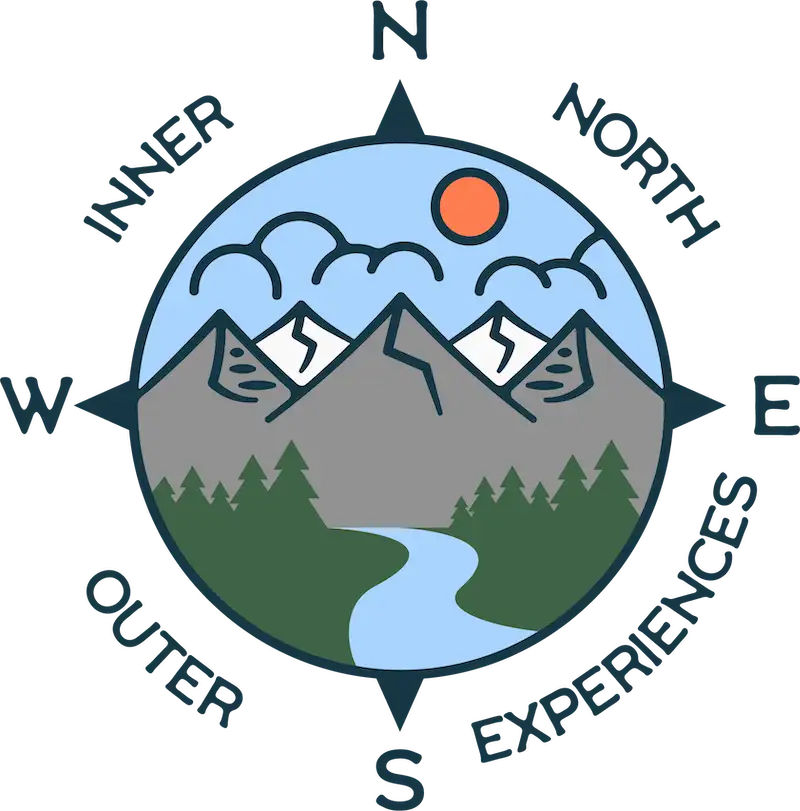
By Phylicia I. Teymer
What do Earth Day, National Parks Week, and Arbor Day all have in common, other than they all happen in April?
Nature — whether it’s about building a greater understanding and appreciation of our environment and biodiversity, the green spaces and magical memories made within our national or local parks, or the restoration and conservation of our trees which provide us the air (O2) we breathe while removing harmful carbon dioxide (CO2) and cyclically storing carbon within their roots — nature plays a significant symbiotic role in our everyday lives. From our food, air, water, land, sunlight, and weather patterns (even oil and natural gas) — the many natural elements we rely on to create most of what we know today stem from nature’s natural resources.
So what is nature-based learning & play — and why is it critical for children, families, and communities, like yours, along with the present and future state of our environment?
It comes down to our focus at Inner North Outer Experiences — on empowering well-being, connection, and growth for the greater sustainability of our communities and environment – in partnership with nature. Helping families explore, discover, connect, and grow while making lasting memories, fostering strong bonds, and helping to spark that wonder, imagination, and curiosity that are cornerstones to creativity and innovation.
It’s the reason we’re driven to create nature supported family activities, from our nature day camps to our latest curated Nature Expeditions for Young Adventurers and Families Starter Kits & upcoming YouTube content, but first, what and why is nature-based learning important?
What is Nature-Based Learning?
Nature-based learning includes fun educational outdoor experiences where participants are immersed in their natural settings – from hands-on full-sensory exploration of our fellow green spaces such as forests, meadows, & parks, from the grasses, soil, and the barks and leaves of trees, to observing insects, wildlife, and weather patterns, every precious moment in nature allows an opportunity for exploration, discovery, connection, and growth for children and adults. It encourages critical and creative thinking, and cognitive and gross-motor skill development, and aids self-regulation, with many studies citing how it reduces anxiety, depression, and isolation, which have been increasing among children and adults today.
Nature-based learning isn’t limited to structured curriculum-based activities, a significant part of learning comes through unstructured play, in allowing children (and adults) to explore and engage with their natural settings freely, often with open-ended prompts. We focus on child and adult nature-based experiences, to foster strong bonds that aid our communities, and ultimately help develop greater public health and well-being.
Through various activities from simple exploratory nature hunts, to building and creating with natural elements, to hypothesizing and testing ideas with natural elements, children not only gain confidence & independent thinking skills, but they also build their social and communication skills, getting in their physical activity while developing a greater understanding of the connection and patterns of living & non-living things, cultivating a deeper connection with the environment and potentially promoting a desire for environmental interest and stewardship throughout life, such as volunteering in their local green spaces, or desiring to protect & restore it, or in creating innovative solutions to address the environmental changes and impacts we’ll see as time progresses.
Parents accompanying their children not only build further connection with their child and other families, it’s a source of inspiration, hope, and renewal to see the world through children’s eyes as they explore and navigate the world of ‘first explorations’, while both benefit from being outdoors in nature.

Why is Nature-Based Learning and Play So Important?
The rapid and ever-evolving pace of technology and our digital world is here to stay. With digital screens and internet-connected devices in nearly every home and on everybody, being digitally engaged, on-time, and on-task, is an ingrained part of society and our way of living. It’s also a constant form of stimulation, where digital overstimulation and what’s served on & internalized from our screens have been shown to increase mental, physical, & psychological health concerns from increased levels of anxiety and depression to lower physical activity, and where the importance of reconnecting with nature has never been more needed.
According to the National Environmental Education Foundation, Children today are spending an average of 7 hours a day on electronic media (5). Stress is the health epidemic of the 21st century, according to the World Health Organization (4), and the U.S. Surgeon General’s office has highlighted the epidemic of loneliness and isolation, where those who lack social connection have a much higher (60%) greater chance of premature death and a slew of other mental and physical concerns (3). The overall well-being of children, families, and communities need support, and there’s a more natural way to help.
Nature-based learning and play provide a way for natural learning through one’s environment & build social connections.
A child’s brain grows and develops the most between the ages of birth to 5 years old, 90% before kindergarten (1) which has a significant impact on their ability to learn and thrive in life and school. It’s during these years that cognitive and fine and gross motor skill development, problem-solving, memory, emotional regulation, and social skill development (including empathy & caring for others), most of which come through early learning, interactions, and engagement with family, friends, and their environment.
Nature-based learning and play offer a gateway to exploration, discovery, connection, and growth for both children and adults alike. Studies of nature have shown it can help reduce anxiety, depression, mental fatigue, anger, and aggression, and improve mood, sleep, confidence, self-esteem, cognitive functioning, and creativity among a variety of other benefits (2).
We started our nature day camps and curated our latest Nature Expeditions and Activities for Young Adventurers and Families Starter Kits to help bring families and classes outdoors – to explore, discover, connect, and grow – to create those lifelong memories, foster greater social bonds, and to let nature help inspire curiosity, creativity, and a love for learning and our natural environments.
It doesn’t need to be Earth Day, Arbor Day, or National Parks Week for you to enjoy and create life-long memories outdoors — you can do it any day.
We hope you allow us to be a part of your journey. Learn more.

Sources:
1. First Things First. Why Early Childhood Matters. Brain Development, www.firstthingsfirst.org/early-childhood-matters/brain-development/. Accessed 26 Apr. 2024.
2. The Science, Dose of Nature, www.doseofnature.org.uk/the-science. Accessed 1 Apr. 2024.
3. “New Surgeon General Advisory Raises Alarm about the Devastating Impact of the Epidemic of Loneliness and Isolation in the United States.” 3 May 2023, “https://www.hhs.gov/about/news/2023/05/03/new-surgeon-general-advisory-raises-alarm-about-devastating-impact-epidemic-loneliness-isolation-unitedstates.html. Accessed 1 Apr 2024
4. “Stress, the ‘Health Epidemic of the 21st Century.’” HCA Healthcare Today, 26 May 2021, www.hcahealthcaretoday.com/2019/04/30/stressthe-health-epidemic-of-the-21st-century/. Accessed 1 Apr. 2024.
5. National Environmental Education Foundation. Children and Nature: Being Active in Nature Makes Kids Healthier. https://e7jecw7o93n.exactdn.com/wp-content/uploads/2012/06/ChildrenNatureInfographic-fullsize.JPG?lossy=1&w=2560&ssl=1. Accessed 1 Apr. 2024.
